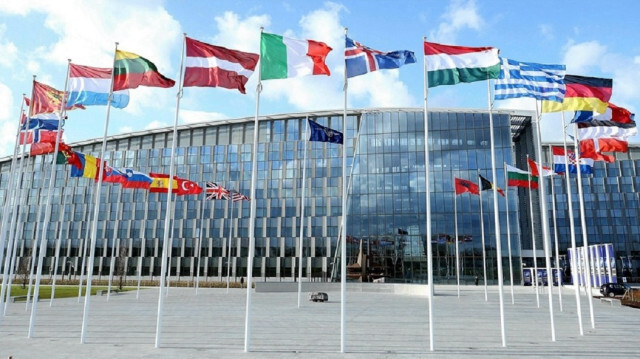

File photo
For first time, defense ministers from key Indo-Pacific partners—Australia, Japan, New Zealand, and Republic of Korea—are participating in discussions
NATO defense ministers on Thursday gathered in Brussels for a two-day meeting to discuss progress on deterrence and defense, support for Ukraine, and global partnerships.NATO's new Secretary General Mark Rutte outlined the need for allies to accelerate efforts to meet evolving threats, calling for greater defense capabilities, increased investment, and enhanced coordination among alliance member states.
He emphasized that these measures are essential to ensure NATO's resilience across all domains.
A new NATO initiative to improve standardization is expected to be approved by ministers, which aims to lower defense procurement costs by streamlining processes and implementing uniform standards.
NATO's support for Ukraine has been at the center of discussions.
Ministers will meet with Ukrainian Defense Minister Rustem Umerov during the NATO-Ukraine Council on Thursday evening to discuss the latest developments on the battlefield and address Ukraine's most pressing needs.
"Ukraine will be a member of NATO in the future. So the question is not about the timeline, what we are doing now with the pledge on track, the commands what we are doing is all the bilateral aid going into Ukraine tomorrow, all the efforts being coordinated at the most allies to work on the reconstruction of. Ukraine, because the Russian threats are only increasing, not in this, only in the short term, but also in the longer term," he said during doorstep in Brussels.
"We stand together against any form of aggression and any form of autocracies who do not share our values and will not respect international law," he added.
NATO is preparing to establish a new command center in Wiesbaden, Germany, which will coordinate security assistance and training for Ukraine.
Beyond Ukraine, the Defense Ministers' meeting is also focusing on the broader global security landscape.
For the first time, defense ministers from key Indo-Pacific partners—Australia, Japan, New Zealand, and the Republic of Korea—are participating in the discussions.
In the first half of 2024 alone, NATO allies provided €20.9 billion (approximately $22.7 billion) in military assistance, and the alliance remains committed to meeting its financial targets by the year's end, according to a statement.
The alliance is also aiming to deliver on the pledge of €40 billion (about $43.4 billion) in military aid for Ukraine.
#Brussels
#Ukraine
#defense ministers
